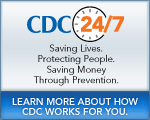Children and Antiviral Drugs
Antiviral Drugs
While getting a flu vaccine each year is recommended by CDC as the first and most important step in protecting against the flu, there also are drugs that can treat influenza. These are called “influenza antiviral drugs” and they are an important treatment option for the flu. (They are not a substitute for vaccination, which can prevent flu illness.)
Antiviral drugs come in the form of pills, liquid or an inhaler. They fight the flu by keeping flu viruses from reproducing in the body. Antiviral drugs must be prescribed by a doctor — they are not available over-the-counter. For treatment, influenza antiviral drugs should be started within 2 days after becoming sick and taken for 5 days. If a child 1 year of age or older gets sick with the flu, antiviral drugs offer a safe and effective treatment option.
Influenza antiviral drugs only work against influenza viruses — they will not help against other viruses that may cause illness symptoms similar to the flu.
Benefits from Antiviral Treatment of Influenza
Antiviral drugs work best if started soon after getting sick (within two days of symptoms starting.) Antiviral drugs can make flu symptoms milder and can shorten the duration of illness. Early treatment of influenza with antiviral drugs also has been shown to reduce the incidence of ear infections and the need for antibiotics in children between the ages of 1 and 12 years old. Studies in adults show that treatment with antiviral drugs may reduce more serious flu-related complications like pneumonia and hospitalizations. While no such studies have been done on children, antiviral drugs may be similarly helpful for reducing more serious flu-related complications in children. Treatment with influenza antiviral drugs could be particularly important for children at high risk of flu-related complications, including children younger than 5 years old and children of any age with chronic health conditions like asthma, diabetes, or heart or lung disease.
The American Academy of Pediatrics (AAP) recommends antiviral drugs to treat influenza in children who are at higher risk of serious flu-related complications and who have moderate-to-severe influenza. These children in particular may benefit from a decrease in the duration of their symptoms. For more information on the AAP recommendations, visit Antiviral Therapy and Prophylaxis for Influenza in Children.
Antiviral Drugs Approved for Use in Children
There are four influenza antiviral drugs approved for use in the United States:
- Oseltamivir (Tamiflu®), is approved for use in children 1 year of age or older.
- Zanamivir (Relenza®), is approved for treatment in children 7 years and older, but is licensed only for use in people without underlying respiratory or heart disease, including people with asthma.
- Amantadine (Symmetrel®) is approved for treatment and prevention in children 1 year of age or older.
- Rimantadine (Flumadine®) is approved for prevention among children older than 1 year. It is approved for treatment in children 13 and older.
CDC has issued interim guidance for health care providers on which antiviral drugs to use during the 2008-09 flu season
Side Effects of Antiviral Drugs
Reported side effects of oseltamivir are nausea and vomiting. Among children treated with oseltamivir in clinical studies, 14% had vomiting, compared with 8.5% of children getting a “placebo.” (A placebo is an inactive substance that looks the same as, and is given in the same way as, a drug in a clinical trial.) Nausea and vomiting might be less severe if oseltamivir is taken with food. In addition, there have been reports of self-injury or delirium among persons with influenza who take oseltamivir. Most of these reports have been in teenagers from Japan, and it is still not certain whether oseltamivir or the influenza virus was responsible for these behavior changes. The U.S. Food and Drug Administration advises that people taking either of the two medications recommended for influenza (oseltamivir and zanamivir) be monitored closely for abnormal behavior.
Side effects from zanamivir have been reported in fewer than 5% of people participating in clinical trials and have been reported at the same rate in people receiving zanamivir as those being given a “placebo.” Reported side effects have included diarrhea, nausea, sinusitis, nasal signs and symptoms, bronchitis, cough, headache, dizziness, and ear, nose, and throat infections. Also, zanamivir should not be used in people with underlying respiratory disease, including asthma.
Side effects of amantadine and rimantadine can include central nervous system (CNS) side effects such as nervousness, anxiety, difficulty concentrating, and lightheadedness, and gastrointestinal side effects like nausea and loss of appetite. CNS side effects happen more often among persons taking amantadine than among persons taking rimantadine. Among some other persons with long-term illnesses, more serious side effects, such as delirium, hallucinations, agitation, and seizures, can occur. Side effects usually diminish and disappear after 1 week.
If Your Child Gets the Flu
Your child’s health care provider can help decide whether your child should take antiviral drugs if they get the flu this season. Flu-like symptoms include fever (usually high), headache, extreme tiredness, dry cough, sore throat, runny or stuffy nose and muscle aches.
For more information, visit Key Facts About Antiviral Drugs and Influenza (Flu).
Contact Us:
- Centers for Disease Control and Prevention
1600 Clifton Rd
Atlanta, GA 30333 - 800-CDC-INFO
(800-232-4636)
TTY: (888) 232-6348 - cdcinfo@cdc.gov



